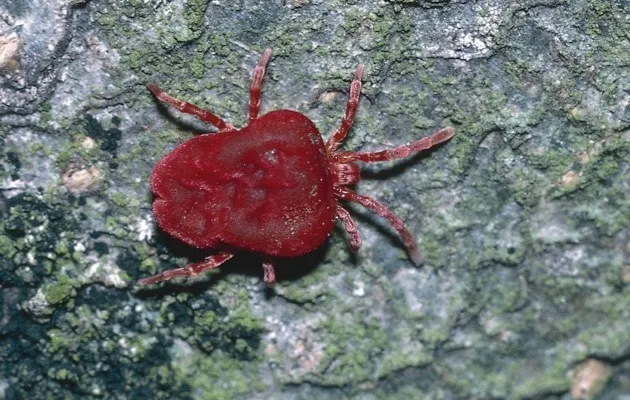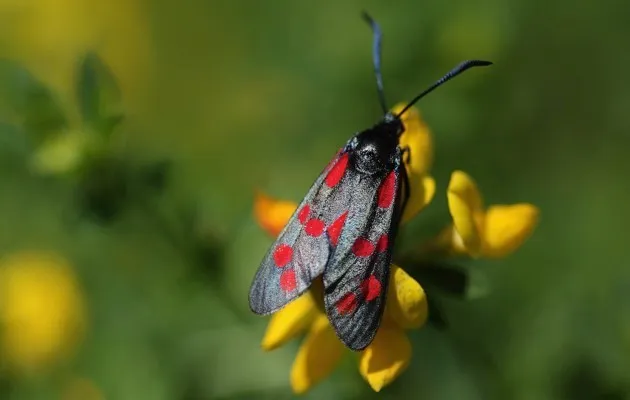A fishy favour
Perhaps unsurprisingly, a female kingfisher is most impressed by a male who presents her with a fish. Clutching a flailing fish in his beak, a male will approach a female head on to allow her to size up the gift on offer. Females will judge the offering based on size and species – it is thought that minnows are preferred, whilst a small bullhead or stone loach is likely to be tossed to one side.
Sperm castles

Few animals are more giving than the male red velvet mite, who will attempt to woo a potential mate by building a ‘love garden’: an intricate structure of twigs and leaves held together with adhesive sperm. If a female accepts the lovingly-crafted sculpture, she will climb on top of it and impregnate herself.
Mothering meerkats
Evidence that animals are capable of intentionally ‘teaching’ others new skills is scarcely seen in nature. But meerkat elders have been recorded teaching their young how to hunt - by giving them scorpions to play with. When the pups are very young, adults bring them dead scorpions. However as they grow they are more likely to be presented with live scorpions – sometimes with the stinger already removed. The offerings enable the pups to learn how to catch potentially deadly prey without risking any injury.
Silk-spun parcels
We’ve all been enticed by pretty wrapping paper, only to be bitterly disappointed by what waits underneath. For the female nursery web spider, accepting a silkily-wrapped gift off of a randy male is always a gamble. She could be treated with a tasty morsel of insect, but the package could also contain useless bits of dead plant. A sneaky male uses his knock-off gift to distract the female long enough for him to attempt mating with her without provoking an aggressive and potentially fatal rejection.
Considerate cats
Present-exchange between different species is seldom recorded – except for when domesticated cats bring gruesome gifts to their owners. In the wild, cats present their kittens with small dead animals to teach them how to catch prey. Because of this, scientists think that cats bring us dead birds and mice in attempt to show us how to hunt properly.
Penguin prostitution
Back in 1998, a team of biologists from Cambridge University witnessed Adélie penguins exchanging pebbles for sex. The sordid gift exchange takes place between a single male and an adulterous female – who will pick up one or two pebbles after a mating event to bring back to her partner’s nest. However it is unlikely that rocks are the only motivation for the female’s sexual exploits. By mating with as many males as possible, she increases her chances of finding a superior male who will father the best offspring.
Meat for friendship
Having allies in chimpanzee society is vital to ensure access to the best food and support in fights. Male chimps often embark on cooperative hunting expeditions to kill other nearby males or small monkeys. Afterwards the hunt’s ringleaders, who are rewarded with the largest share of meat, give out some of their food to their ‘friends’ – the chimps that they spend the most time with. Meat sharing is thought to strengthen male to male friendship bonds, and enhance both the giver and receiver’s social standing in chimp society.
Sharing poison

The audacious six-spot burnet moth uses chemical weaponry such as poison to defend itself from predators. Both males and females produce their own supply of cyanide during an energy-costly process that converts plant matter into poison. But poison production is so exhausting that females prefer to acquire their ammo from a male suitor, who will generously donate cyanide during a mating attempt. As well as spraying the poison at her enemies, the female moth will coat her fertilised eggs in the chemicals to prevent predators from eating them.
Follow Science Focus onTwitter,Facebook, Instagramand Flipboard